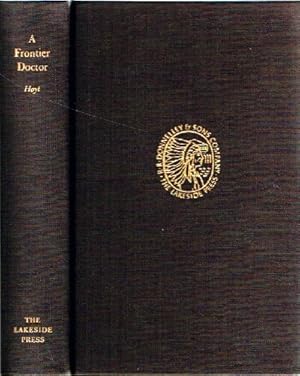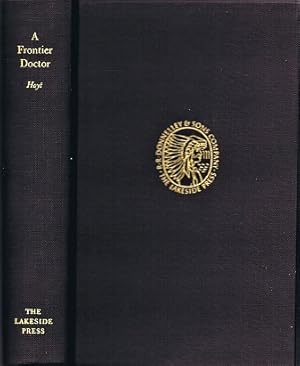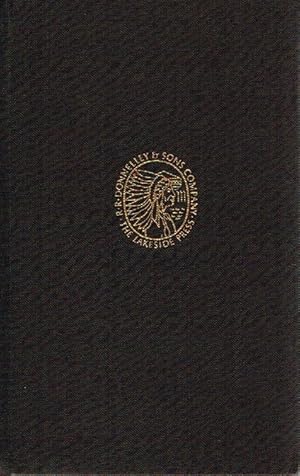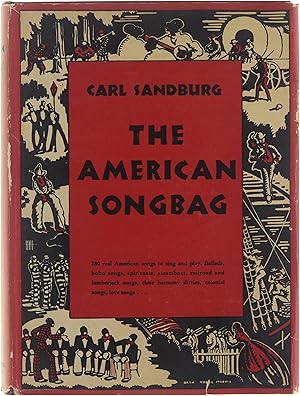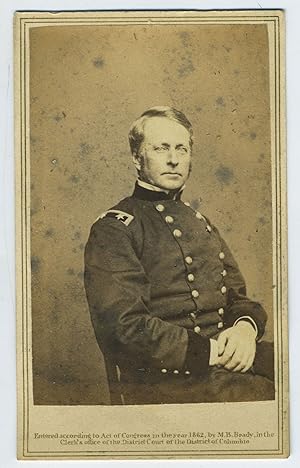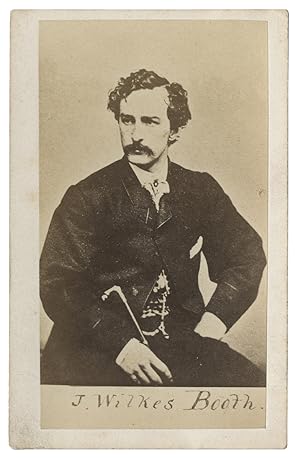Returned by E D Brady (6 results)
Product Type
- All Product Types
- Books (6)
- Magazines & Periodicals
- Comics
- Sheet Music
- Art, Prints & Posters
- Photographs
- Maps
-
Manuscripts &
Paper Collectibles
Condition
- All Conditions
- New
- Used
Binding
- All Bindings
- Hardcover (4)
- Softcover
Collectible Attributes
- First Edition (3)
- Signed
- Dust Jacket (1)
- Seller-Supplied Images
- Not Printed On Demand
Seller Location
Seller Rating
-
A Frontier Doctor
Published by R. R. Donnelley & Sons Company / The Lakeside Press, Chicago, 1979
First Edition
Hard Cover. Condition: As New. First Edition Thus. First Printing. Publisher's full brown cloth, gilt lettering on spine, gilt medallion on cover, t.e.g. Illustrated with B&W photographs and reproductions. The author, Henry Franklin Hoyt (1854-1930) was born in St. Paul, Minnesota. After attending the University of Minnesota in 1870 71, Hoyt began medical training with his uncle John Henry Murphy, a doctor, and also as an intern at Church (later St. Luke's) Hospital in St. Paul. In 1875 76 he attended Rush Medical School in Chicago. "Itchy feet" prompted Hoyt to interrupt his medical studies and seek a new location out west. In the spring of 1877 he reached Deadwood, South Dakota. In September he made his way to Santa Fe, New Mexico, and thence south to the Pecos River valley. Near Roswell, New Mexico, he put up at the ranch of John S. Chisum, who told him that Tascosa, in the Texas Panhandle, was in need of a doctor. In November 1877 Hoyt arrived at Tascosa in the middle of a smallpox outbreak and became an immediate hero after saving the life of Casimero Romero's adopted daughter, Piedad. Hoyt met Billy the Kid (Henry McCarty) in a Tascosa saloon; he once reportedly gave the outlaw a lady's watch, won in a poker game, for the Kid to present as a gift to his sweetheart, Paulita Maxwell. In October 1878, just before Hoyt departed for Las Vegas, New Mexico, Billy presented him with a sorrel racehorse formerly owned by Sheriff William Brady, whom the Kid had killed during the Lincoln County War. To prevent any embarrassment over the horse's ownership, Billy wrote Hoyt a bill of sale, witnessed by the owners of a local general store. Hoyt resided for a time at Las Vegas, where for extra money he tended bar at the Exchange Hotel, then moved his practice to Bernalillo. There he remained until 1881, when he went back east to continue his studies. In March 1882 he received his M.D. degree from the Columbus (Ohio) Medical College. He then returned to St. Paul, where he became a surgeon for several railroad companies. In 1889 Hoyt was appointed head of the St. Paul health department. At the outbreak of the Spanish-American War in May 1898, Hoyt enlisted in the medical department of the United States Volunteers as chief surgeon, with the rank of major. He served under Gen. Arthur MacArthur (father of Douglas MacArthur) in both that conflict and the subsequent Philippine Insurrection, where he was wounded in action. He received the Silver Star for gallantry in action during the insurrection and rose to the rank of surgeon general. After his discharge in October 1902, he practiced medicine in El Paso. In 1910 he moved to Long Beach, California, where he remained until his retirement. In his autobiography, A Frontier Doctor (1929), appears one of the last eyewitness accounts of the Panhandle frontier. . The volume is in perfect, pristine condition; unmarked, tight, square, and clean. AS NEW. The Lakeside Classics Series. Vol. 77. B&W Photographs. 16mo 6" - 7" tall. liii, 518 pp.
-
A Frontier Doctor
Published by R. R. Donnelley & Sons Company / The Lakeside Press, Chicago, 1979
First Edition
Hard Cover. Condition: As New. First Edition Thus. First Printing. Publisher's full brown cloth, gilt lettering on spine, gilt medallion on cover, t.e.g. Illustrated with B&W photographs and reproductions. The author, Henry Franklin Hoyt (1854-1930) was born in St. Paul, Minnesota. After attending the University of Minnesota in 1870 71, Hoyt began medical training with his uncle John Henry Murphy, a doctor, and also as an intern at Church (later St. Luke's) Hospital in St. Paul. In 1875 76 he attended Rush Medical School in Chicago. "Itchy feet" prompted Hoyt to interrupt his medical studies and seek a new location out west. In the spring of 1877 he reached Deadwood, South Dakota. In September he made his way to Santa Fe, New Mexico, and thence south to the Pecos River valley. Near Roswell, New Mexico, he put up at the ranch of John S. Chisum, who told him that Tascosa, in the Texas Panhandle, was in need of a doctor. In November 1877 Hoyt arrived at Tascosa in the middle of a smallpox outbreak and became an immediate hero after saving the life of Casimero Romero's adopted daughter, Piedad. Hoyt met Billy the Kid (Henry McCarty) in a Tascosa saloon; he once reportedly gave the outlaw a lady's watch, won in a poker game, for the Kid to present as a gift to his sweetheart, Paulita Maxwell. In October 1878, just before Hoyt departed for Las Vegas, New Mexico, Billy presented him with a sorrel racehorse formerly owned by Sheriff William Brady, whom the Kid had killed during the Lincoln County War. To prevent any embarrassment over the horse's ownership, Billy wrote Hoyt a bill of sale, witnessed by the owners of a local general store. Hoyt resided for a time at Las Vegas, where for extra money he tended bar at the Exchange Hotel, then moved his practice to Bernalillo. There he remained until 1881, when he went back east to continue his studies. In March 1882 he received his M.D. degree from the Columbus (Ohio) Medical College. He then returned to St. Paul, where he became a surgeon for several railroad companies. In 1889 Hoyt was appointed head of the St. Paul health department. At the outbreak of the Spanish-American War in May 1898, Hoyt enlisted in the medical department of the United States Volunteers as chief surgeon, with the rank of major. He served under Gen. Arthur MacArthur (father of Douglas MacArthur) in both that conflict and the subsequent Philippine Insurrection, where he was wounded in action. He received the Silver Star for gallantry in action during the insurrection and rose to the rank of surgeon general. After his discharge in October 1902, he practiced medicine in El Paso. In 1910 he moved to Long Beach, California, where he remained until his retirement. In his autobiography, A Frontier Doctor (1929), appears one of the last eyewitness accounts of the Panhandle frontier. . The volume is in perfect, pristine condition; unmarked, tight, square, and clean. AS NEW. The Lakeside Classics Series. Vol. 77. B&W Photographs. 16mo 6" - 7" tall. liii, 518 pp.
-
A Frontier Doctor
Published by R. R. Donnelley & Sons Company / The Lakeside Press, Chicago, 1979
First Edition
Hard Cover. Condition: As New. First Edition Thus. First Printing. Publisher's full brown cloth, gilt lettering on spine, gilt medallion on cover, t.e.g. Illustrated with B&W photographs and reproductions. The author, Henry Franklin Hoyt (1854-1930) was born in St. Paul, Minnesota. After attending the University of Minnesota in 1870 71, Hoyt began medical training with his uncle John Henry Murphy, a doctor, and also as an intern at Church (later St. Luke's) Hospital in St. Paul. In 1875 76 he attended Rush Medical School in Chicago. "Itchy feet" prompted Hoyt to interrupt his medical studies and seek a new location out west. In the spring of 1877 he reached Deadwood, South Dakota. In September he made his way to Santa Fe, New Mexico, and thence south to the Pecos River valley. Near Roswell, New Mexico, he put up at the ranch of John S. Chisum, who told him that Tascosa, in the Texas Panhandle, was in need of a doctor. In November 1877 Hoyt arrived at Tascosa in the middle of a smallpox outbreak and became an immediate hero after saving the life of Casimero Romero's adopted daughter, Piedad. Hoyt met Billy the Kid (Henry McCarty) in a Tascosa saloon; he once reportedly gave the outlaw a lady's watch, won in a poker game, for the Kid to present as a gift to his sweetheart, Paulita Maxwell. In October 1878, just before Hoyt departed for Las Vegas, New Mexico, Billy presented him with a sorrel racehorse formerly owned by Sheriff William Brady, whom the Kid had killed during the Lincoln County War. To prevent any embarrassment over the horse's ownership, Billy wrote Hoyt a bill of sale, witnessed by the owners of a local general store. Hoyt resided for a time at Las Vegas, where for extra money he tended bar at the Exchange Hotel, then moved his practice to Bernalillo. There he remained until 1881, when he went back east to continue his studies. In March 1882 he received his M.D. degree from the Columbus (Ohio) Medical College. He then returned to St. Paul, where he became a surgeon for several railroad companies. In 1889 Hoyt was appointed head of the St. Paul health department. At the outbreak of the Spanish-American War in May 1898, Hoyt enlisted in the medical department of the United States Volunteers as chief surgeon, with the rank of major. He served under Gen. Arthur MacArthur (father of Douglas MacArthur) in both that conflict and the subsequent Philippine Insurrection, where he was wounded in action. He received the Silver Star for gallantry in action during the insurrection and rose to the rank of surgeon general. After his discharge in October 1902, he practiced medicine in El Paso. In 1910 he moved to Long Beach, California, where he remained until his retirement. In his autobiography, A Frontier Doctor (1929), appears one of the last eyewitness accounts of the Panhandle frontier. . This volume is in perfect, pristine condition; unmarked, unread, tight, square, and clean. AS NEW. . The Lakeside Classics Series. Vol. 77. B&W Photographs. 16mo 6" - 7" tall. liii, 518 pp.
-
Hardcover. Condition: Good. Dust Jacket Condition: Good. score xxiii, 495 p : illus ; 27 cm. Songs, English--United States. Ballads, English--United States. Folk songs, English--United States. Folk music--United States. Text English "An American bookshelf of song": p. xii-xiii. He's gone away -- Boll weevil song -- Moanish lady! -- I ride an old paint -- Foggy, foggy dew -- Waillie, walittie! -- Dis mornin', dis evenin', so soon -- Oh, bury me not on the lone prairie -- Careless love -- The John B. Sails -- John Henry -- Midnight special -- Alice B. -- Po' boy -- As I was wakin' down Wexford Street -- Sh-ta-ra-day-dey (Irish lullaby) -- She said the same to me -- Who's the pretty girl milkin' the cow? -- Give me three grains of corn, mother -- Kevin Barry -- The sone of a gambolier -- I wish I was single again -- Walky-talky Jenny -- Hayseed -- Good-by Liza Jane -- Wizard oil -- Barbra Allen -- The frozen girl -- Pretty Polly -- Common Bill -- Little Scotch-ee -- The house carpenter -- A pretty fair maid -- Lord Lovel -- The quaker's wooing -- The maid freed from the gallows -- Frankie and Albert -- Frankie and Johnny -- Frankie blues -- Josie -- Sadie -- The little old sod shanty -- Where o where is old Elijah? -- Turkey in the straw -- Who will shoe your pretty little foot? -- The true lover's farewell -- Fair Annie of Lochyran -- Ten thousand miles away -- Old gray mare -- The drunkard's doom -- What was your name in the states? -- Sweet Betsy from Pike -- California -- The banks of Sacremento -- Money -- The monkey's wedding -- Rosie Nell -- Chicken reel -- Hanging out the linen clothes -- Down, down derry down -- The lane county bachelor -- Sourwood Mountain -- The lover's lament -- Hello, girls -- Kansas boys. Red River Valley -- Liza Jane -- Mountain top -- Negro reel -- One morning in May -- The troubled soldier -- Post-rail song -- Hammer man -- Love somebody, yes I do -- Ain't gonna rain -- Kentucky moonshiner -- Mister frog went a-courting -- Kind miss -- Goin' down to town -- The ship that never returned -- Down in the valley -- I dreamed last night of my true love -- Drivin' steel -- The Missouri harmony -- Windsor -- Greenfields -- Worthington -- Highbridge -- Legacy -- The brown girl or fair Eleanor -- Hey Betty Martin -- Old brass wagon -- Cuckoo waltz -- Weevily wheat -- El-a-noy -- Hoosen Johnny -- My pretty little pink -- Lincoln and liberty -- Old Abe Lincoln came our of the wilderness -- The Erie Canal -- Bigerlow -- Red iron ore -- Raging canawl -- The E-ri-e -- Hallelujah, I'm a bum! -- Tramp, tramp, tramp, keep on a-tramping -- The dygin hogger -- Wanderin' -- A.R.U. -- We are four bums -- The poor working girl -- Roll the chariot -- Brady -- On to the morgue -- It's the syme the whole wolrd over -- In the days of old Rameses -- The good boy -- Willy the weeper -- Cocaine Lil -- She promised she'd meet me -- No more booze (Fireman save my child) -- Lydia Pinkham -- Bird in a cage -- Yonder comes the high sheriff -- Portland County jail -- Moonlight -- Midnight special -- Seven long years in state prison -- When I was young and foolish -- Been in the pen so long -- The preacher and the slave -- Levee moan -- Those gambler's blues -- Got dem blues. De blues ain' nothin' -- When a woman blue -- Coo-coo (Peacock song) -- Great Gawd, I'm feelin' bad -- O my honey, take me back -- What kin' o' pants does the gambler wear? -- Joe Turner -- Times gettin' hard, boys -- I'm sad and I'm lonely -- C.C. Rider -- You fight on -- Satan's a liah -- Ballet of de boll weevil -- De Titanic -- When the curtains of night are pinned back -- When the work's all done this fall -- As I walked out in the streets of Laredo -- The dreary Black Hills -- The Lone Star Trail -- Whoopee ti yi yo, git along little dogies -- The Buffalo skinners -- Poor lonesome cowboy -- The tenderfoot -- Litte ah sid -- The kinkaiders -- Dakota land -- The farmer -- Rabble soldier -- The trail to Mexico -- La cucaracha (Mexican cockroach song) -- Mananitas (de jalisco) -- Le que digo -- El abandonado -- Cielity Lindo -- Adelita -- Versos de montalgo -- Way up on Clinch Mountain -- Liza in the summer time (She died on the train) -- Coon can (Poor boy) -- Gypsy Davy -- The roving gambler -- Yonder domes my pretty little girl -- The gamboling man -- O bury me beneath the willow -- Mag's song -- The orphan girl or no bread for the poor -- I got a gal at the head of the holler -- Lonesome road -- Fond affection -- Go bring me back my blue-eyed boy -- London City -- The midnight train -- I don't like no railroad man -- Sucking cider through a straw -- Did you ever, ever, ever? -- I was born almost ten thousand years ago -- Go get the ax. Abalone -- In de vinter time -- Cigarettes will spoil yer life -- Mary had a william goat -- I wish I was a little bird -- Old Adam -- The horse named Bill -- Crazy song to the air of "Dixie" -- A boy he had an auger -- Abdul, the bulbul ameer -- Greens -- Animal fair -- Calliope -- Si Hubbard -- Bolsum Brown -- Poor Paddy works on the railway -- The railroad cars are coming -- Jerry, go an' ile that car -- If I die a railroad man -- Cap'n I believe -- Jay Gould's daughter and on the Charlie so long -- Casey Jones -- Mama have you heard the news? -- Don' let yo' watch run down -- There's many a man killed on the railroad -- She'll be comin' 'round the mountain -- I went down to the depot -- Ever since Uncle John Henry been dead -- Go 'way f'om mah window -- My Lulu -- The wind it blew up the railroad track -- Hog-eye -- My sister she works in a laundry -- I found a horse shoe -- Railroad Bill -- Hangman -- Timber -- James Whaland -- The shanty-man's life -- Flat River girl -- The jam on Gerry's rock -- Driving saw-logs on the plover -- Morrissey and the Russian sailor -- Mule skinner's song -- Whisky Johnny -- Blow the man down -- The dead horse -- Heave away -- The wide Mizzoura -- I catch-a da plenty of feesh -- The hog-eye man -- Leave her, bullies, leave her -- Across the Western Ocean -- Jim Fisk -- Jesse James -- Sam Bass -- The hunte.
-
Gen. Joseph Hooker, carte de visite by Mathew Brady
Published by E. & H.T. Anthony, New York, 1862
Seller: Antipodean Books, Maps & Prints, ABAA, Garrison, NY, U.S.A.
Photograph. Condition: Very good overall. Joseph Hooker (1814-1879) was a Union General during the Civil War. "Following General Ambrose Burnside's resounding defeat at the Battle of Fredericksburg, President Lincoln named the charismatic Joseph Hooker as commander of the Army of the Potomac in January 1863. With signature bravado, Hooker proclaimed, "May God have mercy on General Lee, for I will have none." But it was Lee who emerged victorious in May when his vastly outnumbered Army of Northern Virginia bested Hooker's forces at Chancellorsville, Virginia. When Lincoln's confidence in him plummeted, Hooker asked to be relieved of his command. He was succeeded by General George Gordon Meade just days before the Battle of Gettysburg. In the autumn of 1863 Hooker returned to the field as a corps commander in the war's western theater, where he contributed to the Union victory at Lookout Mountain, Tennessee. He later served ably in Sherman's Atlanta campaign but relinquished his command when he was passed over for promotion".(Smithsonian on Union Generals.) NPG.81.M270.D1. Hooker is seated facing right, his hands folded in his lap. He wears the epaulets of a major general. The image has spotting in the background, not on his image. Published by E. & H.T. Anthony, 501 Broadway New York from Photographic Negative in Brady's National Portrait Gallery. 4 x 2 3/8", very good overall.
-
Lincoln Assassin John Wilkes Booth & Conspirator John H. Surratt Contemporary Cartes-de-Visite
Published by Washington, D.C., 1865
No binding. Condition: Very Good. Carte-de-visite of John Wilkes Booth, ca. 1862 (Gutman 21). "J. Wilkes Booth" added below photograph in the negative. 1 p., 2.5 x 4 in. With Carte-de-visite of John H. Surratt, ca. 1868, with copyright statement. 1 p., 2.5 x 4 in. #26050.02 The first carte-de-visite shows the young actor as he appeared a few years before he assassinated President Abraham Lincoln to avenge the South for the failure of the Confederacy. The original photograph was taken by Silsbee & Case of Boston in 1862. The photograph was widely reproduced in the aftermath of the assassination and given to search parties looking for Booth.The second is a profile photograph of John H. Surratt after his return to the United States and trial, with the notice that it was "Entered according to Act of Congress by John H. Surratt, in the year 1868, in the Clerk's Office of the District Court of the District of Columbia." With "Brady & Co's" mark on the verso. John Wilkes Booth (1838-1865) was born in Maryland as the illegitimate son of the British Shakespearean actor Junius Brutus Booth and his mistress Mary Ann Holmes. He began his theatrical career at age 17 in Baltimore in August 1855, with a supporting role in Richard III, but did not begin regular appearances until two years later. He was soon acting in scores of plays and earning enough to become wealthy. Between August 1857 and May 1864, Booth gave hundreds of performances in cities throughout the dividing and divided nation. During the first half of 1862, he made his stage debut in leading roles in Chicago, New York, and Boston. When family friend John T. Ford opened his new theatre in Washington in November 1863, Booth was one of the first leading men to appear there. He delivered the final performance of his acting career there on March 18, 1865. A strong opponent of abolitionists and supporter of an independent Confederacy, Booth formulated a plan to kidnap President Abraham Lincoln and recruited Confederate sympathizers in 1864. When Union forces captured Richmond and Robert E. Lee's Army of Northern Virginia surrendered, Booth's kidnapping plan was no longer feasible, and he changed his goal to assassination. He shot Lincoln in the back of the head on the evening of April 14, 1865, then fled on horseback into Maryland. Twelve days later, Union troops surrounded Booth at a farm in Virginia and killed him.John H. Surratt (1844-1916) was born in Washington, D.C. and enrolled at St. Charles College, where he studied for the priesthood. When his father died in 1862, he received an appointment as postmaster for Surrattsville, Maryland, southeast of Washington. During the Civil War, Surratt served as a Confederate Secret Service courier and spy. Surratt joined John Wilkes Booth's plan to kidnap President Abraham Lincoln and participated in a failed attempt in March 1865. After Booth assassinated Lincoln and another conspirator nearly killed Secretary of State William H. Seward, Surratt denied involvement and fled to Canada. While he was there, his mother Mary Surratt was arrested, tried, and executed as a conspirator in the assassination of Lincoln. He fled to England under a false name, then served for a time in the Pontifical Zouaves in the Papal States. Recognized by an American, Surratt was arrested in November 1866 and sent to prison, from which he escaped. He fled to Egypt but was arrested there and returned to the United States in early 1867. His trail in a Maryland civilian court ended in a mistrial, and he was released on bail. Admitting his role in the plan to kidnap Lincoln, Surratt insisted he knew nothing of the change of plan to assassination. He later worked as a teacher and then worked for the Baltimore Steam Packet Company. Photograph.


